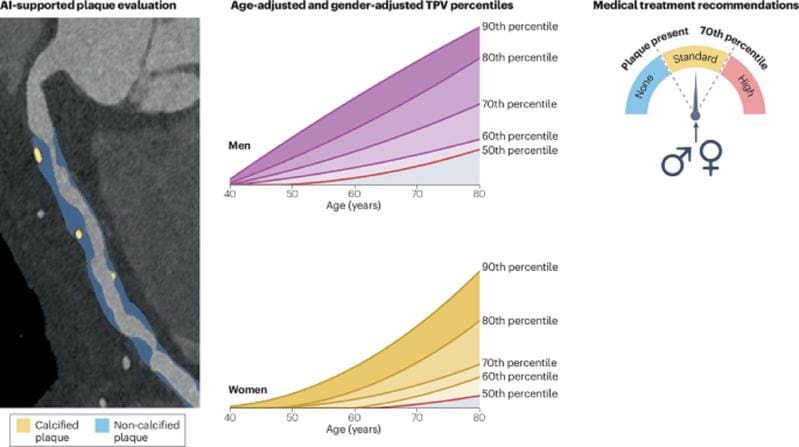New recommendations for individualized treatment of hardening of the arteries through AI-assisted CT analysis
An international group of heart specialists led by Charit├® ŌĆō Universit├żtsmedizin Berlin has published new recommendations for the individualized drug treatment of hardening of the arteries. Supported by the German Center for Cardiovascular Research and funded by the German Research Foundation, the recommendations aim to use artificial intelligence (AI) to evaluate CT images of the coronary arteries more precisely and thus enable tailored therapies.

Every year, more than two million people with chest pain in Europe are examined using coronary computed tomography angiography to visualize calcified and non-calcified deposits in the coronary arteries that can cause heart attacks. Until now, there has been a lack of clear guidelines on how these test results can be used for targeted drug therapy. The experts emphasize that AI improves the assessment of atherosclerotic plaques by comparing the amount of plaque with large amounts of data and taking into account age- and gender-specific averages. This enables a more accurate risk assessment for heart attacks and supports individualized treatment decisions.
The recommendations, published in Nature Reviews Cardiology, come from the Quantitative Cardiovascular Imaging Study Group and were developed by two doctoral students of the DFG-funded Research Training Group BIOQIC. If deposits are present in the CT, drug treatment in combination with lifestyle changes is recommended. If the amount of plaque is significantly increased, the experts recommend more intensive therapy, for example through higher doses of cholesterol-lowering drugs or combinations with other active ingredients. The recommendations are based on a multi-stage expert process and large studies and mark a shift towards personalized cardiac medicine based on actual vascular changes rather than general risk factors. The aim is to treat patients at risk at an early stage and to protect others from unnecessary therapies. The next step is to test the effectiveness of this AI-powered strategy in large randomized clinical trials that compare CT analyses with and without AI.
Original Paper:
Editor: X-Press Journalistenb├╝ro GbR
Gender Notice. The personal designations used in this text always refer equally to female, male and diverse persons. Double/triple naming and gendered designations are used for better readability. ected.




